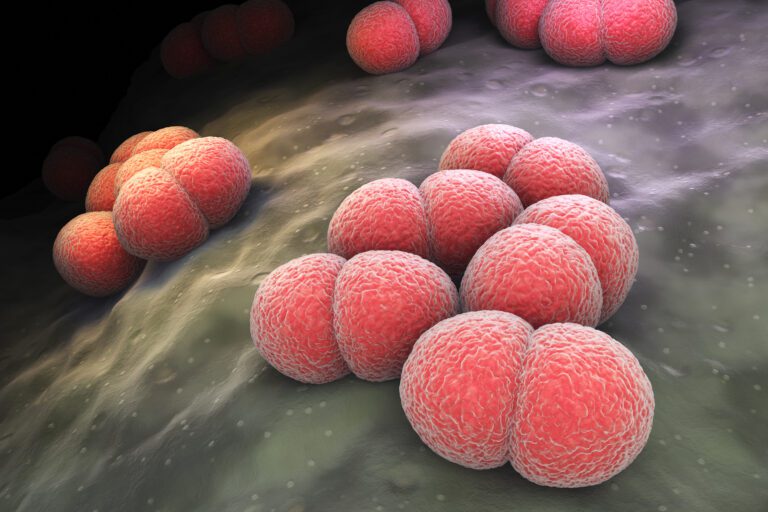STDs vs. Normal Aging: How Symptoms Get Confused
Growing older comes with its share of changes—slower recovery after exercise, new aches, or shifts in sexual health. Most people accept these adjustments as a natural part of life. But sometimes, what looks like a normal change could signal something more serious.
This is where confusion often begins: STDs vs. normal aging. The signs of sexually transmitted diseases can look a lot like the symptoms people expect with age. Fatigue, urinary changes, dryness, or skin irritation are just a few examples. Many older adults dismiss them as “just part of getting older,” only to later find out they were dealing with an infection all along.
At Hope Across The Globe, we see how often this mix-up happens. Understanding the overlap is key to protecting your health. In this guide, we’ll break down how normal aging and STD symptoms compare, why seniors are particularly vulnerable to misdiagnosis, and why STD testing in Jacksonville or your local area is essential for clarity.
Why the Confusion Between Aging and STDs Happens
Aging and Sexual Health Are Often Overlooked
For decades, discussions about sexual health focused mainly on younger people. But seniors are living longer, remarrying, dating, and staying sexually active. At the same time, medical conversations about older adults often skip over sexual well-being. This creates a gap in awareness, leaving many unsure of what’s “normal” for their age.
Overlapping Symptoms
The challenge comes from the fact that normal aging and STD symptoms often look alike. For example:
- A man who wakes often at night to urinate might assume it’s prostate trouble, when it could also be chlamydia.
- A woman who experiences vaginal dryness may think it’s only menopause, but an infection like gonorrhea could also be involved.
Without testing, it’s almost impossible to tell the difference.
Social Stigma and Silence
Another reason older adults misinterpret symptoms is the stigma around sexual health. Many seniors grew up in generations where STDs were not openly discussed. Shame or embarrassment can keep them from asking questions, leading to dangerous delays in diagnosis.
Normal Aging: Expected Changes in Men and Women
Understanding what’s typical can help identify when something is unusual.
Women and Aging
- Vaginal dryness and thinning tissues: Due to menopause and reduced estrogen levels.
- Pain during intercourse: Often linked to natural hormonal decline.
- Bladder changes: Increased urgency, frequency, or occasional incontinence.
- Hot flashes and mood changes: Common hormonal shifts after midlife.
Men and Aging
- Erectile dysfunction: Reduced testosterone and circulation changes often play a role.
- Prostate enlargement: Can cause urinary frequency, weak stream, or nighttime urination.
- Slower arousal and recovery: Normal with age-related shifts in hormone and blood flow.
For Both Men and Women
- General fatigue: Normal with aging, but can also point to infection.
- Weaker immune system: Older adults may not fight infections as well.
- Skin sensitivity: Thinner skin makes rashes and irritation more noticeable.
STD Symptoms That Look Like Aging
STDs don’t always announce themselves clearly. Some infections remain silent for months or years, while others mimic age-related concerns.
Common STD Symptoms in Adults
- Burning or painful urination
- Genital itching, rashes, or sores
- Abnormal discharge (vaginal or penile)
- Unexplained pelvic or lower abdominal pain
- Pain during sex
- Flu-like symptoms: fever, fatigue, swollen lymph nodes
How They Get Mistaken for Aging
- Painful urination is often blamed on prostate issues or urinary tract infections.
- Genital irritation can be confused with post-menopausal dryness.
- Persistent fatigue may be seen as “just aging,” when infections like HIV or syphilis can be the cause.
- Skin changes may be mistaken for natural aging spots instead of herpes or HPV.
Side-by-Side: STDs vs. Normal Aging
Why Misdiagnosis Is So Dangerous
Health Complications
When left untreated, STDs can lead to serious issues:
- Infertility: Even later in life, infections can cause scarring and damage.
- Chronic pain: Pelvic inflammatory disease or untreated infections may cause ongoing discomfort.
- Organ damage: Syphilis and hepatitis can harm the liver, heart, or brain
- Increased cancer risk: HPV raises the chance of cervical, anal, and throat cancers.
Emotional Consequences
Misdiagnosis also affects emotional health. Not knowing the cause of symptoms creates anxiety and stress. Relationships may suffer when intimacy becomes painful or when partners fear passing along an infection.
Why Testing Is the Only Reliable Answer
Tests Bring Clarity
Doctors may suspect a cause based on age or symptoms, but only a test provides certainty. Blood tests, swabs, and urine samples can confirm or rule out infections quickly.
Protecting Yourself and Others
Testing not only gives you peace of mind but also prevents passing infections to a partner unknowingly.
Accessible and Confidential
In cities like Jacksonville, testing services are available and private. At Hope Across The Globe, we encourage anyone with new or unexplained symptoms to consider STD testing in Jacksonville as part of regular healthcare.
When to Seek Testing Instead of Assuming It’s Aging
You should strongly consider getting tested if you notice:
- Burning or pain when urinating
- New or unusual discharge
- Itching, sores, or rashes near the genitals or mouth
- Pain during intercourse that doesn’t improve with menopause treatments
- Recurring urinary tract infections without a clear cause
- Ongoing fatigue without explanation
Even if you believe it’s aging, testing offers peace of mind.
Breaking Down the Stigma
Why Seniors Avoid Help
Many older adults hesitate to seek STD testing because they feel embarrassed or think it’s unnecessary at their age. But avoiding the topic does more harm than good.
Normalizing the Conversation
At Hope Across The Globe, we work to change the conversation. Sexual health isn’t just for the young—it’s part of overall health at every age. By normalizing testing and open dialogue, we can reduce the stigma that keeps seniors silent.
Prevention for All Ages
Protection Still Matters
Condoms and other protective methods are just as important for older adults as they are for younger ones.
Education Is Key
Knowing how STDs vs. normal aging symptoms overlap helps you make better decisions about when to see a doctor.
Make Testing Routine
If you’re sexually active, regular testing should be part of your healthcare routine. Services like STD testing in Jacksonville are designed to make the process simple and private.
Honest Communication
Having open conversations with partners about testing and health history reduces risk and builds trust.
Commercial Note: How Hope Across The Globe Supports You
At Hope Across The Globe, we understand how confusing it can be to sort through normal aging and STD symptoms. That’s why we provide education, resources, and encouragement for testing. Whether you’re in Florida, considering STD testing in Jacksonville or elsewhere, our goal is to help you stay informed, safe, and confident about your health.
No matter your age, you deserve clarity—and that starts with taking your symptoms seriously.
FAQs About STDs vs. Normal Aging
1. Can menopause symptoms be mistaken for an STD?
Yes. Menopause can cause vaginal dryness, itching, and discomfort during sex. These symptoms can look similar to infections like herpes, chlamydia, or gonorrhea. The only way to know for sure is through testing.
2. Are STDs really common in seniors?
Absolutely. While many people think of STDs as a younger person’s concern, cases have been rising steadily in adults over 50. Increased life expectancy, dating after divorce or widowhood, and lower condom use contribute to this trend.
3. How often should I get tested if I’m over 50?
If you’re sexually active, once a year is a safe guideline. If you have multiple partners or notice symptoms that could be confused with aging, schedule testing sooner. Clinics offering and beyond can help you stay updated.
4. What if I feel embarrassed asking my doctor about STD symptoms?
It’s common to feel uncomfortable, but doctors see these issues every day. They treat them as a normal part of health. At Hope Across The Globe, we encourage open conversations so that embarrassment doesn’t prevent you from getting answers.
5. Can erectile dysfunction be linked to STDs?
Yes. While aging and circulation problems are the most common reasons, certain infections—like syphilis—can also contribute to erectile challenges. Testing can separate the causes.
Final Thoughts
Growing older is natural, but it doesn’t mean every new change is harmless. The overlap between STDs vs. normal aging is one of the biggest challenges adults face in staying sexually healthy. Too often, symptoms are dismissed until infections have already caused damage.
The solution is simple: awareness and action. Pay attention to changes, don’t assume they’re age-related, and prioritize testing. At Hope Across The Globe, we encourage you to take charge of your health, seek answers, and protect your future.
If you live in Florida, consider STD testing in Jacksonville today. A single test can offer peace of mind, safeguard your relationships, and ensure that you continue enjoying a healthy life—at every age.






